
Choosing natural hair products should be simple, right?
Now it is. You can use our research to find the best natural hair products for your regimen.
Whether you’re an experienced natural or a new natural, at the end of the day, you have two primary goals as it is related to natural hair products: (1) To find hair products that work for your hair and (2) to use them in the way that’s best for your hair.
That’s it.
It doesn’t matter how well the product works for another natural if it doesn’t work the same way for your hair. If you’ve been following us for a while, then you probably know that we do tons of research and read just about every natural hair book that’s released.
A few months ago, I was about to purchase a copy of a hair book when I read the following statement advertising the book:
“Get a secret oil mix that grew my hair extremely fast and also cured a bald spot and thinning hairline. You won’t find it in your local beauty supply store, but I will show you where to get it. The results of this oil have been miraculous, and I continue to use it and see results.”
Does anyone honestly believe the statement above?
These types of claims should make you raise an eyebrow and lead you to ask several questions.
If it is so easy to use this secret oil mix and grow your hair extremely fast, then why aren’t they selling the oil mix instead of a $25 book that will reveal the secrets? You could make substantially more money with your secret oil mixture.
Table of Contents
- 1 Overview of Choosing Products for Natural Hair
- 2 The Natural Hair Regimen That Works
- 3 Shampoo
- 4 Moisturizing Shampoo (or Conditioning Shampoo)
- 5 Clarifying Shampoo
- 6 Conditioners
- 7 The Best Non-Flaking Hair Gel for Natural Hair
- 8 Natural Oils and Butter
- 9 Protein Treatments
- 10 How to Read the Ingredients Labels on Hair Products
- 11 Why Are the First Few Ingredients So Important?
- 12 Frequently Asked Questions
- 12.1 Is it important to read beyond the first five or six ingredients?
- 12.2 What if there are ingredients that you like further down the list?
- 12.3 What if the first ingredient isn't water?
- 12.4 Why do some products work differently when they have the same ingredients?
- 12.5 Can a label have secret ingredients?
- 12.6 Are organic hair products really better for your hair?
- 13 Hair Extensions
- 14 Wigs and Hairpieces
- 15 Flat Irons
- 16 Hair Dryers
- 17 Hair Cutting Scissors
- 18 Some Additional Considerations
- 19 Thoughts on Purchasing Natural Hair Products
Overview of Choosing Products for Natural Hair
This isn’t an article about how you should take things slow and keep it simple because, eventually, you’ll figure it out. You’ve heard that strategy before (and that strategy does work), but it's not the approach that we recommend.
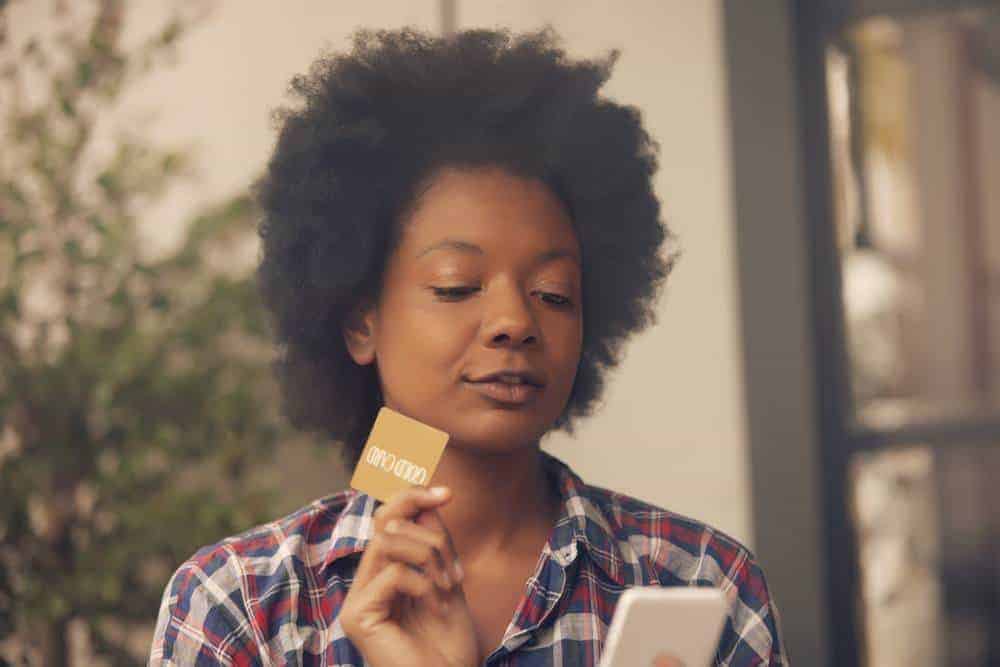
If you want to speed up selecting the right products for your hair, then you should focus on finding hair care products that work well together and addresses two critical needs: moisture and protein.
Keep the following point in mind; there is really no right or wrong way to determine your natural hair regimen.
If you ultimately find natural hair products that work well for your hair, then you’ve accomplished your goal.
You will likely notice that even if you do find the “right products,” the effectiveness of these products may change from time to time.
This is why you hear many naturals talk about their winter regimen or their summer regimen. If you live in an area where there are extreme fluctuations in humidity or temperatures, there may be a need to adjust your regimen during these periods.
This can often make building a comprehensive natural hair regimen more difficult, especially for new naturals.
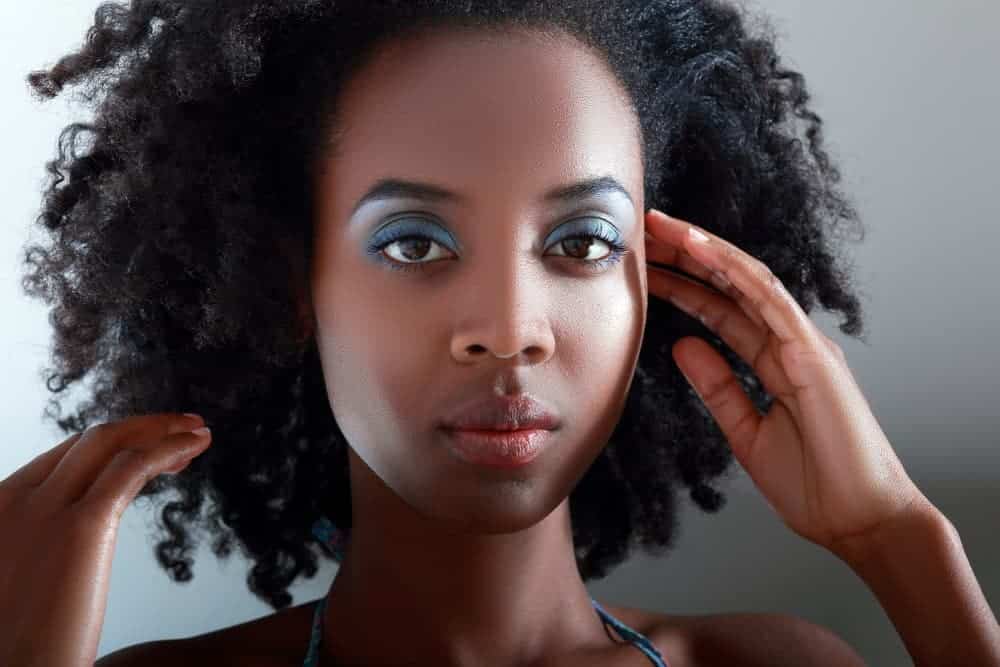
The Natural Hair Regimen That Works
If you’re a regular reader of Curl Centric, then you know that we’re about taking action (and if you’re new, welcome) – and please be sure to check out our natural hair basics article prior to proceeding with the information provided below.
You will need to consider protein-based products and moisture-based products for your regimen. There are several product types that you need to consider when you start your natural hair regimen.
Depending on how the needs of your hair change over time (and during various seasons), you may need to select more than one product from the various categories shown below.
Disclaimer: Don’t take this information as the only way to create a great natural hair regimen. You may currently have a regimen where you utilize fewer products or different products.
Please don’t change a hair care regimen that works for you on account of the information provided below. However, if your current regimen doesn’t work as well as you would like or if you’re newly natural, the information provided below will help you create a regimen with natural hair products that work.
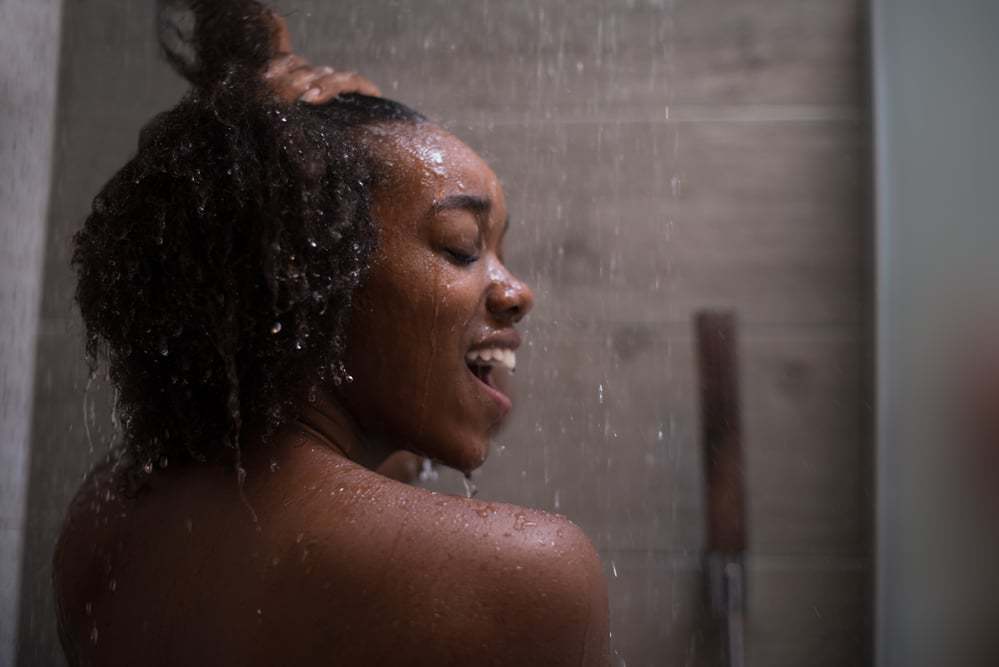
Shampoo
Selecting an effective shampoo will be critical to the success of your natural hair regimen. For new naturals, I generally recommend that you wash your hair once per week, and you will be able to eventually determine whether that works well for you.
You will need to make adjustments based on your schedule and as you learn more about your hair and the needs of your hair. The products that you use, your level of physical activity, or many other things may influence how frequently you decide to shampoo.
There are two types of shampoos that you’ll need to consider: moisturizing shampoos and clarifying shampoos.
Moisturizing Shampoo (or Conditioning Shampoo)
When selecting a moisturizing shampoo for natural hair, it is usually ideal to look for a product that doesn’t contain sodium lauryl sulfate or ammonium lauryl sulfate (i.e., also called a sulfate-free shampoo).
Your moisturizing shampoo should be a gentle cleanser that you use consistently throughout your regimen. Typically, we recommend using this product once per week if you’re newly natural.
As you learn more about your hair, you may determine that using this product more or less often is more appropriate for you.
Several women within the natural hair community look for shampoos that are sulfate-free. You will notice that several product manufacturers have created natural hair products that are free of sodium lauryl sulfate, SLS-free, or ammonium lauryl sulfate-free.
There are many other variants of “SLS-free or ALS-free” advertising, but there are a couple of things that you need to consider.
Shampoos often contain sulfates because they help clean the hair. The presence of sulfates allows the shampoo to remove product buildup and dirt from your hair.
If you decide to utilize a shampoo that contains sulfates, there is one thing to consider. There is an inverse relationship between sulfates and the moisturizing ability of shampoo.
Typically, a shampoo that contains multiple sulfates won’t be very moisturizing. Since the desire to retain moisture is a primary goal for many women, often naturals look to avoid sulfates altogether when selecting a moisturizing shampoo.
The specific ingredients that you should avoid are outside of the scope of this article.
When you consider the creativity of product manufacturers with respect to listing ingredients, maintaining an updated list of ingredients to avoid becomes an exercise in futility.
When selecting moisturizing shampoos, look for a product that doesn’t contain sulfates; this is probably easiest for a new natural.
More experienced naturals can utilize products that contain a relatively small percentage of sulfates or contains milder sulfates once they learn more about the purpose of the various ingredients included in a shampoo.
Moisturizing Shampoos:
- SheaMoisture Jamaican Black Castor Oil
- Hydratherma Naturals Moisture Boosting Shampoo
- Giovanni Smooth As Silk Moisture Shampoo
Clarifying Shampoo
Clarifying shampoos should be used when the product build-up is evident because they strip the hair – making it squeaky clean.
When we talk about clarifying shampoos, we often compare them to a painter working on a fresh, white canvas. This is actually a very good metaphor to describe how clarifying shampoos work conceptually.
Clarifying Shampoos:
Shampoos (Cleansers)
Effective shampoos are critical to the success of your natural hair regimen. We normally recommend washing your hair once per week for new naturals who are trying to create a natural hair regimen.
However, once you get to know your hair, you may need to modify the frequency as necessary.
The group of natural hair products that you use on your hair may influence how often you need to shampoo.
If you are a real product junkie and use several different types of products, you might have to shampoo more frequently than someone who is more of a minimalist – who decides to use very few products.
Some hardcore do-it-yourself ladies have even started making their own natural hair shampoos - shikakai shampoo, African black soap shampoo, and soapnut shampoo are examples.
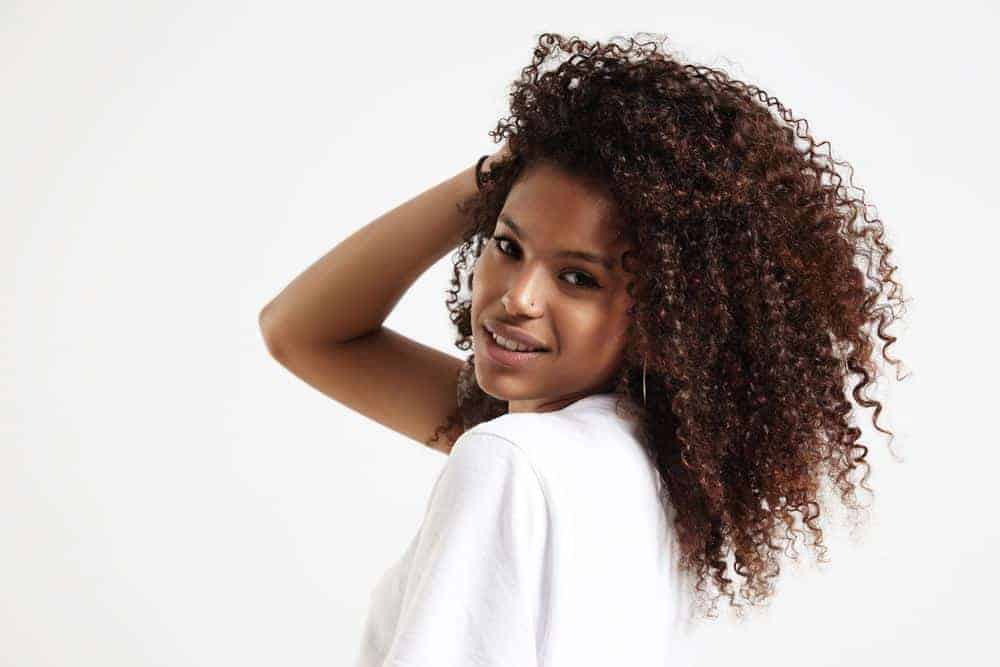
Conditioners
When you want to deposit moisture or protein into your hair strands, you can choose from a few different types of conditioners.
Generally, conditioners provide a temporary remedy or cosmetic fix for hair that appears damaged or feels dry. It’s important to note that conditioners have limitations and can only mend the hair to a certain extent.
Conditioners are generally available in three categories:
- Leave-in conditioners: Leave-in conditioners are generally used after you wash your hair. This product is applied to the hair and not rinsed out.
- Rinse-out conditioners: Rinse-out conditioners are worked through the hair and then rinsed out.
- Deep conditioners (also referred to as a hair mask, treatment, or repair conditioners): These are penetrating conditioners that add moisture and protein to the hair strand. Often times it’s recommended to utilize heat when applying deep conditioners. It is important to note that adding heat to a conditioner doesn’t make it a deep conditioner.
The conditioners that you use consistently within your regimen should be moisturizing conditioners. You should only incorporate protein-based, deep conditioners into your regimen on an as-needed basis.
When selecting moisturizing conditioners, some women avoid cones or silicones like the plague. The thought is that if a product contains a high percentage of cones, the product will eventually lead to dry hair due to the moisturizing effect of the product being mitigated.
Since listing every ingredient that you should avoid isn’t practical, here are some general guidelines:
When selecting a moisturizing deep conditioner, the ingredients list should contain water, fatty alcohols, and humectants at a minimum. The idea is to avoid ingredients that will coat the hair strand and mitigate the moisturizing effectiveness.
Conditioners:
Multi-purpose conditioners are worth their weight in gold. Many conditioners can be used to co-wash, detangle, style, and deep condition.
Moisturizing Conditioners:
- Herbal Essences Hello Hydration Moisturizing Conditioner
- Hydratherma Naturals Moisture Boosting Conditioner
- Giovanni Smooth As Silk Moisture Conditioner
Protein Conditioners:
- Redken Extreme Conditioner
- SheaMoisture Manuka Honey & Yogurt Hydrate + Repair Protein Power Treatment
Detanglers:
The Best Non-Flaking Hair Gel for Natural Hair
We receive a fair amount of questions from ladies looking for flake-free hair gel or non-flaking hair gel.
It's difficult to make a specific recommendation since the best non-flaking hair gel for natural hair really depends on your overall natural hair regimen.
The most likely reason that your styling gel is flaking is that it likely doesn't combine or blend well with the previous hair products used on your hair. We most often see this issue caused by your hair conditioner.
The primary purpose of applying hair gel is to encourage the hair strands to "gel" together. The use of a hair conditioner or leave-in conditioner, especially water-based products, before applying hair gel helps to keep your hair moist during the drying process.
In short, we recommend the following process when applying hair gel:
• Lightly wet hair (i.e., you want damp hair). We recommend using a small spray bottle.
• Next, use a little water-based hair conditioner.
• Finally, apply the hair gel.
Individual hair gels, based on the product's formulation, are likely to work well with a particular set of conditioners.
Some conditioners will have active ingredients that react when mixed with certain hair gels, which results in creating flakes.
The issue cannot be solely blamed on the hair gel or the conditioner. This is effectively just a chemical reaction from mixing ingredients in two hair products that don't work well together.
Fixing the Problem
If flakes appear when you apply the gel, then it will always create flakes when you combine this specific hair gel with the specific conditioner. You can attempt to use less conditioner, which may help to some extent.
However, the flakes are forming because of a formulation conflict between the two products.
The problem can be fixed by either changing your hair conditioner or by using a suitable hair gel that works with your hair conditioner.
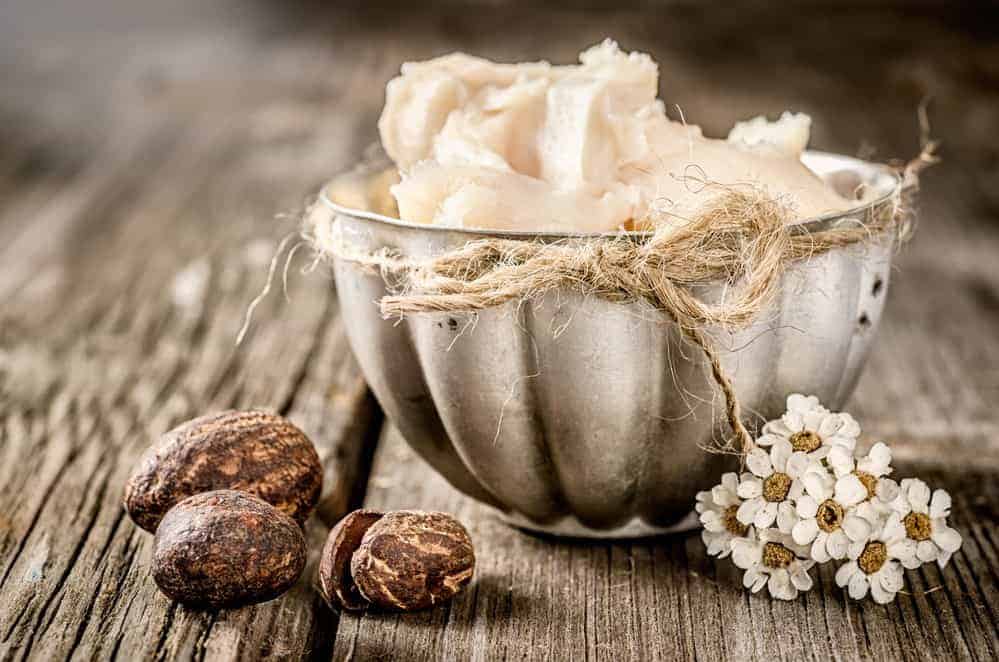
Natural Oils and Butter
Moisturizing the hair is a critical component of each natural hair regimen. We tend to answer many questions each month about maintaining moisture-protein balance.
While it is important to incorporate water-based moisturizing products into your regimen, it is also important to seal the moisture into your hair strands.
We recommend using oils or butter to accomplish sealing in moisture within your regimen.
Hair Oil and Butter Sealants:
Oils and butter, like safflower oil, neem oil, tea tree oil, argan oil, sweet almond oil, olive oil, castor oil, coconut oil, and emu oil, are multi-purpose and are wonderful additions to use on your body as well as your hair.
If you have fine, thin hair, you may find that butter weighs down the hair. If that is the case, starting with oil may be best.
Oils for Sealing (Heavy Oils)
Oils for Pre-shampooing or Oil Rinsing
Protein Treatments
Protein treatments can vary greatly in potency. It is critical that you read and follow the instructions provided on the product’s label.
Misuse can possibly do more harm than good. The hair is roughly 70% keratin protein. Using protein-based products on your hair can help to reinforce or strengthen the hair shaft.
This will provide additional support to your hair strands as you try to combat breakage. These products are generally used for rebuilding the hair strand.
How often you utilize protein treatments will depend on the amount of damage that you intend to mend. The amount of protein needed will likely be different for each person.
You will have to experiment some to determine exactly what your hair needs, but we can give you some general guidelines: protein treatments should be performed on an as-needed basis.
The goal is to truly understand your hair, what it needs, and when it needs certain products.
Protein Shampoos:
Protein Reconstructors (Remember to always use a moisturizing conditioner after each treatment)
Protein Conditioner
- Organic Root Stimulator Olive Oil Replenishing Conditioner
- Palmer's Coconut Oil Deep Conditioning Protein Pak
Protein Leave-Ins
How to Read the Ingredients Labels on Hair Products
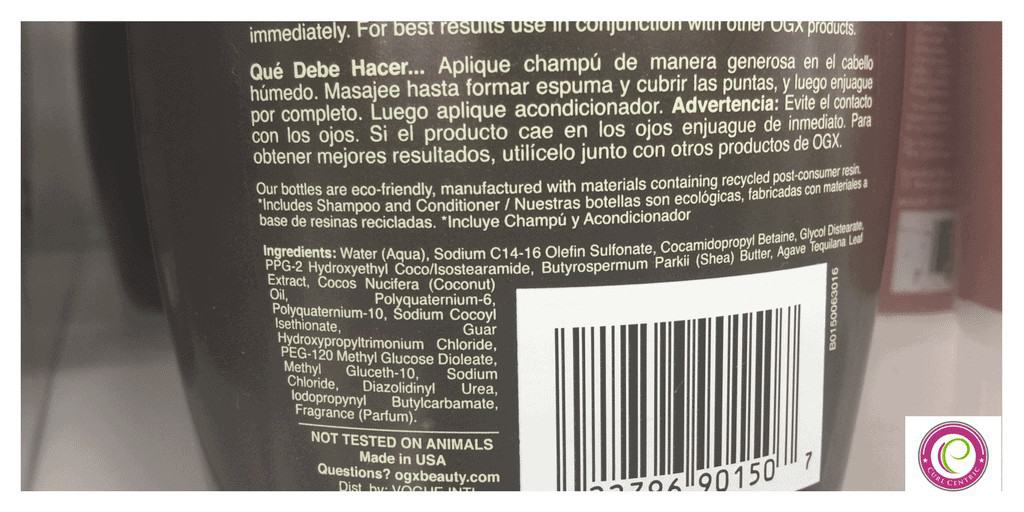
For shampoos, leave-in conditioners, and hair conditioners, it's critical that you understand the first five ingredients.
For example, the water content of shampoos and conditioners varies from one manufacturer to the next but will usually range from 50% to 80% of the product's total weight.
If you buy a hair conditioner or shampoo and the list of ingredients doesn't start with water, then you should be suspicious and check with the manufacturer to ensure that their list is accurate.
Why Are the First Few Ingredients So Important?
As you review the ingredients label on your shampoos and conditioners, it's likely that a significant percentage is simply water. Consequently, there isn't a lot of room for adding much else.
This is where consumer marketing becomes vital for the product manufacturer.
These companies design attractive labels and claim that their product contains an essential blend of jojoba oil and wheatgrass (as an example) and makes your hair looks stunning. In this instance, a few drops of jojoba oil is added so that the product will be ready for consumers.
In many cases, when you search for the jojoba oil that convinced you to purchase the product, you will discover that it is buried somewhere near the bottom of the list of ingredients (since it's actually mostly an irrelevant ingredient added for consumer marketing purposes).
Briefly put, if you check out the first five or six ingredients of a product (either excluding or including water), you see what the main ingredients are that actually affect your hair.
Frequently Asked Questions
 Is it important to read beyond the first five or six ingredients?
Is it important to read beyond the first five or six ingredients?
If you happen to be allergic to something (such as coconut oil) or are trying to avoid a specific ingredient (such as protein, sodium lauryl sulfate, or silicones), then it is especially important to read through the complete list.
It isn't necessary to study each ingredient that's on the list.
Although, you will want to determine if any of the ingredients that you're trying to avoid are contained in the product. After you have scanned the complete list of ingredients, you can go back to focusing on the first five or six ingredients.
What if there are ingredients that you like further down the list?
It's common for hair product manufacturers to include certain ingredients for marketing purposes. Consumers like seeing natural ingredients in hair products, so the manufacturer includes a few natural ingredients.
What if the first ingredient isn't water?
This is technically possible but highly unusual from our experience. The hair product might work for you, but the ingredient list is very questionable if it doesn't include water as the first ingredient.
If there are items such as thickeners (cetyl alcohol) or surfactants (behentrimonium methosulfate) listed first, then the conditioner's feel and consistency should be very strange.
It would likely have a particle and waxy feel to it. In situations like these, we recommend checking with the manufacturer to verify that the ingredient list is accurate.
Why do some products work differently when they have the same ingredients?
The reason for this difference is what the industry calls formulation. This is the process that determines how much of each ingredient is included in the product (in addition to the actual mixing process that is used).
For instance, one product might have 3% of a particular surfactant, and another product will have 2.5% of the same surfactant.
Although these differences might be subtle, the subtle difference in formulation could be perfect for one individual's hair but cause the product not to work at all for another person's hair.
The manufacturer usually lists the ingredients in descending order which means that the ingredients might appear in the same position on two different bottles, but that doesn't tell you precisely how much is contained in the formula.
The best advice that I can give you is to read all of the claims on the product's label very carefully.
If you like the ingredients, but the label says that the product is designed for color-treated hair and you don't have color-treated hair, then don't buy that product.
Search for a hair product that is formulated for the proper purpose.
Can a label have secret ingredients?
To omit ingredients from the label, the FDA has to approve the omission. The process needs to be considered a "trade secret" according to the FDA's guidelines.
Usually, the FDA will not agree to exclude widely-known formulation methods (for instance, typical oil mixes) or if there are allergy concerns, which is often the case with cosmetics.
If you were to search through the hair products that are currently on sale at your local beauty supply store, it would be hard for you to find any that have certain ingredients declared as trade secrets.
Are organic hair products really better for your hair?
Several years ago in Germany, Clairol created a curling iron called the “Mist Stick”. The funny thing is – in German – the English word ‘Mist’ is slang for manure – like cow manure.
Needless to say, Clairol didn’t sell many Manure Sticks in Germany and eventually had to drop the campaign.
There are many other branding blunders that I could share from popular companies that we all know and love. However, the truth is that most companies have gotten pretty sophisticated when it comes to writing marketing copy and producing creative concepts.
In the hair industry (and several others), there is a recent trend that is highly effective because of the implied meaning of the phraseology.
Check out this sample marketing phraseology from a hair product manufacturer:
Note: The slogan has been tweaked slightly to maintain anonymity – because the intent of this article is not to call out a product manufacturer.
“Organic hair products are purely manufactured with all-natural plant ingredients which nourish, stabilize, and moisturize your hair while not damaging your hair follicles.”
That marketing slogan implies a very specific meaning to many people but actually means something completely different. I’ll explain.
Many people believe that organic hair products are automatically better than other hair products – therefore, you should only use organic hair products.
The following statement might surprise you: The Food and Drug Administration (FDA) does not have an official definition of the term organic.
The U.S. Department of Agriculture (USDA) manages a “National Organic Program” that includes some basic defining characteristics of the term organic.
In order for a product to be considered “organic”, it must be produced using approved methods (organic production methods) and not contain synthetic fertilizers, sewage sludge (yuck!), or irradiation. It is important to note that genetic modification is also prohibited.
Here are a few notes about organic products that might surprise you:
In order to use the slogan “Made with Organic Ingredients,” – only 70% of the product must be made using organic ingredients. To use the official USDA Organic Seal, 95% of the product ingredients must be organic.
Finally, the term “100% organic” means exactly what it implies; all included ingredients conform to organic production methods.
Hair products that use organic verbiage can still contain very harmful ingredients that are bad for your hair.
The primary takeaway from this article is that “organic” ingredients are NOT always better for your hair than ingredients made from non-organic sources.
The real truth is a substance that is harmful to your hair is still harmful, regardless of whether it was prepared using organic production methods or not.
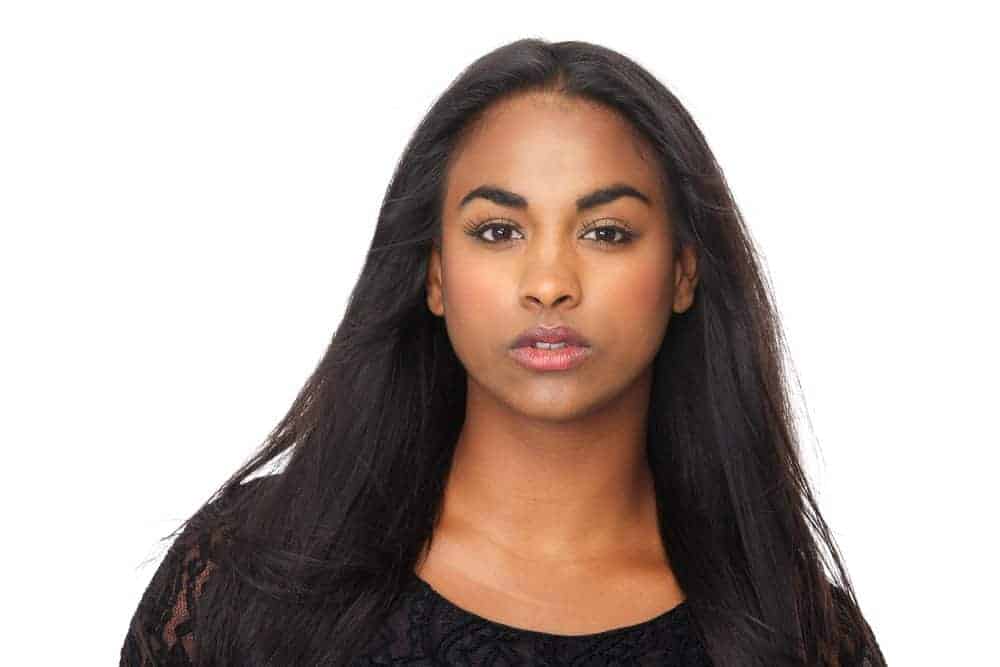
Hair Extensions
Extensions are hairpieces designed to add length and volume to your natural hair. These can be made either of genuine human hair or synthetic materials.
Human
Clip-on extensions and clip-in extensions are common, as are weave-in and tape-in extensions. Micro rings, netting, and products that blend extensions with traditional wigs are also available.
- Can You Use Eyelash Glue for Hair Extensions
- Are Hair Extensions Bad for Your Hair
- How Do Hair Extensions Work
- What Are the Best Hair Extensions for Thin Hair
- How To Choose Hair Extensions for Short Hair
- How Long Do Hair Extensions Last
- Can You Dye Hair Extensions With Box Dye
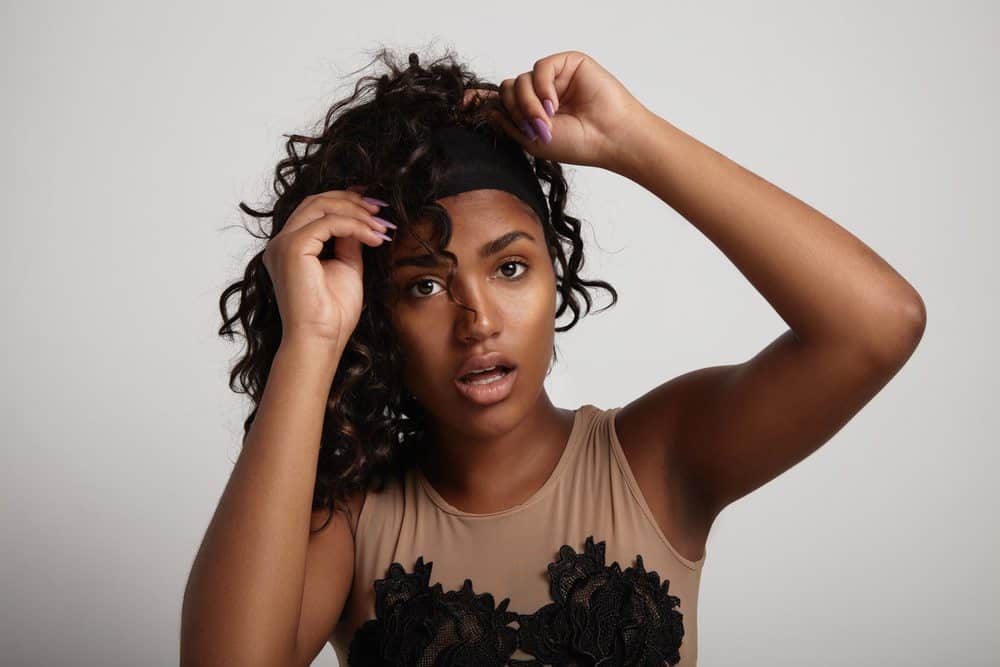
Wigs and Hairpieces
Modern women have such a wide range of wigs to choose from today that picking out the perfect one can be almost overwhelming. Potential choices include human hair wigs, lace front wigs, and many other types of hairpieces.
Selecting a wig is a process that can get every bit as complex as buying a diamond. There are different hair types, wig densities, and adhesive methods. Just as with precious stones, you'll need to understand the specialized vocabulary of the product before making a commitment.
- What To Use Instead of a Wig Stand
- How To Get Bonding Glue Out of Hair
- How To Weave Short Hair Without Glue
- How To Remove Super Glue From Hair
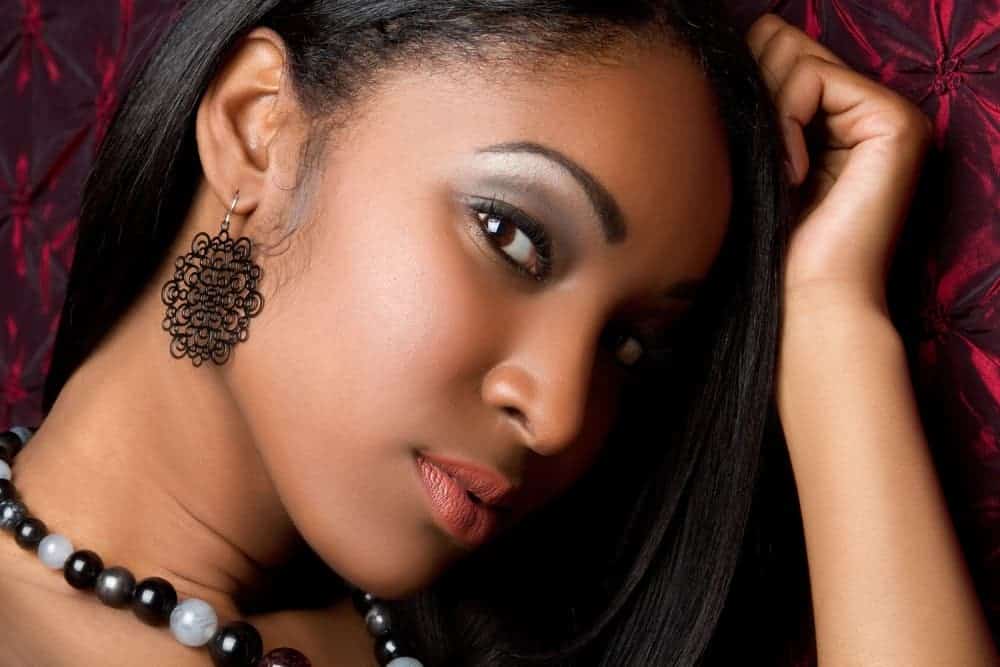
Flat Irons
We've assembled a complete flat iron buying guide possible in order to help you pick out the ideal flat iron to suit your hair type. Think you know everything about the world of flat irons?
Think again!
Curly hair is great, but you don't have to make a 24/7 commitment to keeping your hair curly.
The pace of technological change in the flat iron market has made it surprisingly tough to select the right flat iron. We're here to help.
Just remember that heat usage can lead to damaged hair and prevent healthy hair growth, so use heat sparingly to avoid brittle hair strands.
- How to Flat Iron Natural Hair Without Causing Heat Damage
- How To Get Rid of Burnt Hair Smell After Straightening
- Are Dominican Hair Salons Good for Black Hair
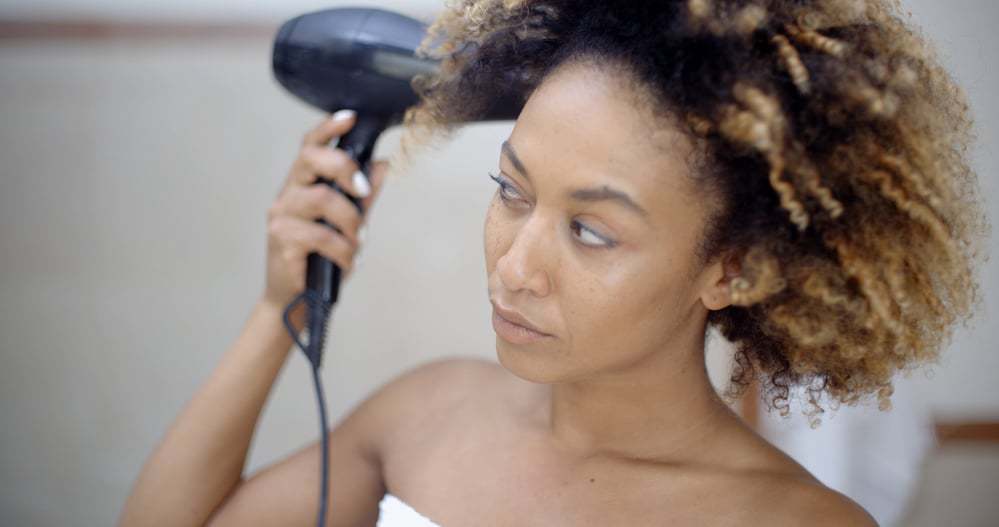
Hair Dryers
Price is typically the number one concern we think about when buying a hair dryer, and that's really kind of a shame.
There's a much wider range of features to consider, and you might be surprised to learn just how versatile modern dryers can be!
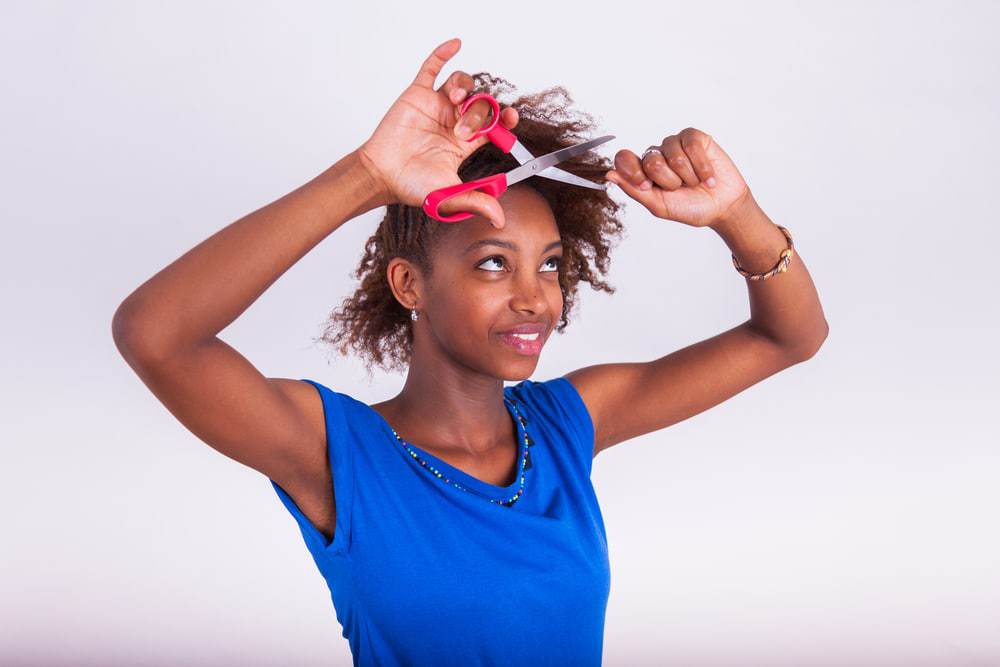
Hair Cutting Scissors
Proper hair-cutting shears are designed expressly and solely for cutting hair.
These purpose-built tools are also known as hairdressing scissors or barber shears. They're quite a bit better than ordinary scissors.
Besides being much sharper, they have a number of design features to make trimming hair as simple as possible.
One common example is the brace or tang typically attached to one of the shears' rings. This allows the user to exert a higher degree of control while trimming.
Click here to learn more about our recommended hair-cutting shears.
Some Additional Considerations
There are many things that you should consider when you’re putting together your natural hair routine.
For example, it may be beneficial for you to create hair goals that include protective styling options and incorporate parameters for heat styling (ex., no heat usage or once per quarter).
However, one of the most important things that you can do is create a killer natural hair journal.
It’s important that you learn and adjust to the specific needs of your hair. There are several natural hair websites that will tell you to do this once per week or once per month.
Please don’t follow this advice. It’s fine to use generic advice as a guide when you first go natural but don’t continue to follow generic advice because you will have hair problems and not understand how to deal with them throughout the course of your journey.
You will need to select several products for your natural hair journey.
We suggest that you place your products into two categories – moisture-based products and protein-based products. You will need to find shampoos, conditioners, sealants, and protein treatments for your hair.
- Curly Girl Hair Method
- Wavy Hair Routine for Beginners
- How to Get Rid of Product Buildup
- Do Hair Products Expire?
Thoughts on Purchasing Natural Hair Products
It’s critical that you find natural hair products that work well for your hair. To start, find a good shampoo and conditioner. Then build your regimen from there - incorporate natural oils, a curl cream, deep conditioning treatment, styling products, and more.
Just be sure to avoid harsh chemicals to encourage healthy, bouncy curls and mitigate hair damage. One of the most important resources for having and maintaining healthy hair is a source of natural hair products that you can buy from reputable, reliable companies.
Fortunately, you can save yourself hundreds of dollars and the stress of poor customer service by using proven companies with low prices and a large selection of natural hair care products, accessories, and supplies.

 Is it important to read beyond the first five or six ingredients?
Is it important to read beyond the first five or six ingredients?


